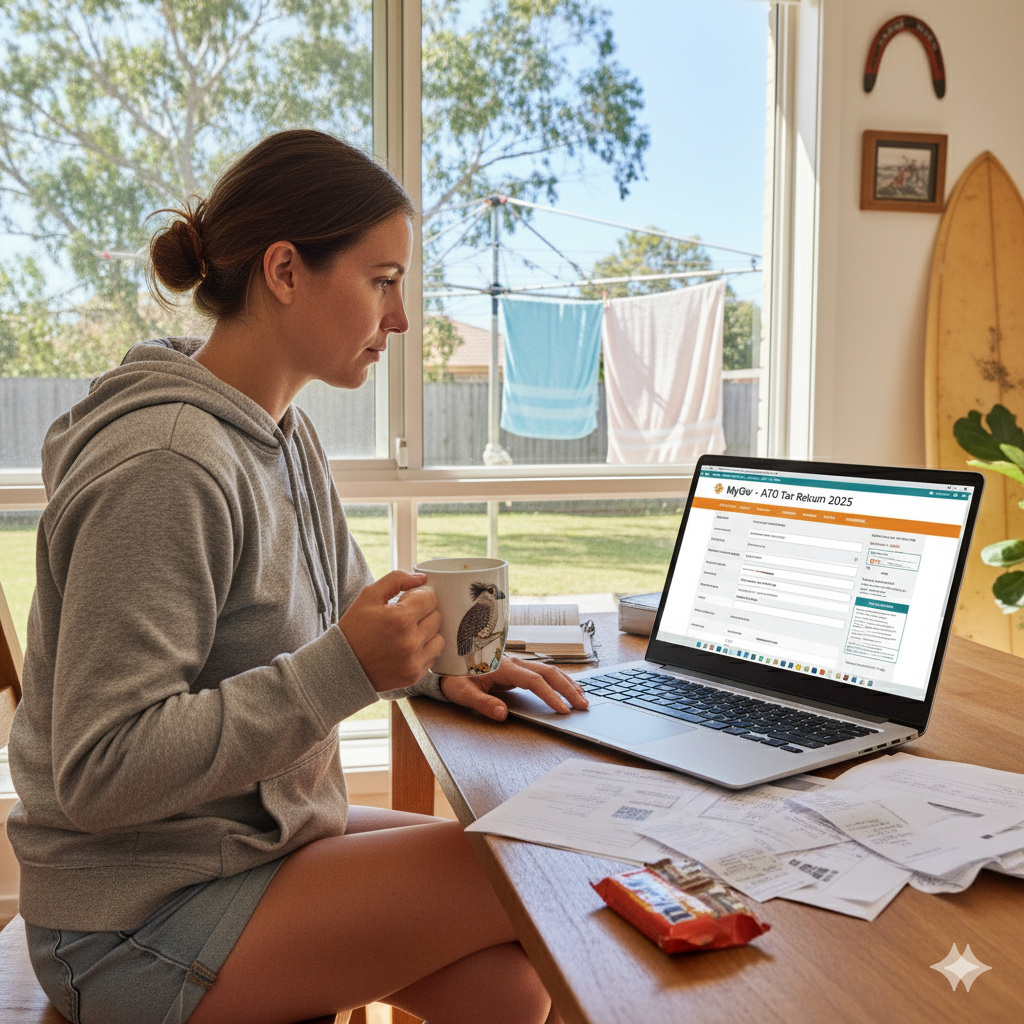How to pick a savings account in Australia
When choosing a savings account, start by comparing interest rates – they’re the main factor that determines how quickly your money grows. Look for competitive ongoing rates, not just short-term introductory offers that drop after a few months.
Next, check the conditions. Many high-rate accounts require you to deposit a minimum amount each month, keep your balance growing, or avoid withdrawals to earn the bonus rate. If that doesn’t suit your habits, a no-conditions account might be better.
It’s also worth comparing features like automatic savings tools, linked transaction accounts, and app usability. Some banks offer round-up features or goal trackers to help you stay on top of your savings.
Finally, make sure the account is covered by the government’s Financial Claims Scheme, which protects deposits up to $250,000 per customer, per bank.
What are the types of savings account rates?
A high-interest savings account allows you to deposit cash and earn above-average interest rates. Among these are a few different types to choose from:
- Introductory rate: Secure a higher interest rate for a temporary period (often the first few months) before reverting to a standard variable rate.
- Bonus rate: If you meet certain monthly conditions you can earn extra interest. If you don’t, the interest rate will revert to a lower base rate.
- Base or standard rate: The only condition for this kind of account is usually the balance limit. On average, base rates are lower than other account types.
Bonus savings accounts
Bonus savings accounts offer higher interest than standard savings accounts – but only if you meet certain conditions each month. These might include:
- Depositing a minimum amount (e.g. $100+ per month)
- Growing your balance month to month
- Making no withdrawals
- Linking to an everyday transaction account with the same bank
They’re a popular choice for savers who want to stay on track with regular deposits and can commit to the account’s terms. Just keep in mind that if you miss the conditions, you'll typically earn a much lower base rate that month.
Some bonus savers are designed for specific goals – like short-term savings or teaching kids to save – while others suit long-term savers chasing the best possible return. Make sure the bonus conditions suit your savings habits.
How do I earn interest on my savings?
Most savings accounts calculate earned interest daily, based on your closing balance. It is then paid out monthly – this is known as compound interest. So, the more you deposit into your savings account to grow your balance and the less you withdraw, the more interest you earn on your money.
Generally speaking, savings account base interest rates are variable so they can fluctuate over time, which is why it’s important to compare rates regularly. If you want to do some old school maths, here’s how to calculate interest on a savings account . If you'd prefer to save time, check out our savings calculator .
FAQs: savings accounts
How do you open a savings account?
Opening up a savings account is a pretty simple process, although there are a couple of things you’ll want to keep in mind.
To start an account you’ll need to:
- Select a provider
- Apply online, by phone or at a branch
- Upload or present identification documents (birth certificate, ID, etc.)
- Choose whether you’ll get a single or joint savings account
- Link your bank account to your savings account.
How much can I deposit into a savings account?
In general, most savings accounts don’t have a specific limit on how much you can deposit. However, providers usually have balance tiers that determine the interest rate earned. This means that once your balance goes over a certain amount, the interest rate will either drop or increase depending on the provider.
Which savings accounts have no fees?
Most savings accounts in Australia don’t charge ongoing account-keeping fees. Popular no-fee options include those from ING, Rabobank, AMP, and the Big Four banks. Always check for other potential costs, like withdrawal or transaction fees.
Do I get taxed on interest earned in a savings account?
Yes, interest earned is considered the same as income and you’ll need to declare this on your annual tax return.
Can I get a debit or ATM card with a savings account?
No, high interest savings accounts are usually only available online or via an app. But you can (or may even be required to) have a transaction account when you sign up which should come with a debit or ATM card.
What is the difference between a transaction (everyday) account and a savings account?
Both savings and transaction accounts are options you have for keeping your money with a banking provider. Transaction or bank accounts are usually used for your everyday spending and as such these usually pay little or no interest. But they do come with a debit or ATM card.
Meanwhile, savings accounts are designed to help you reach your savings goals. They usually have higher interest rates and are accessed via online banking or via a banking app. Keep in mind that they do not come with an ATM card.
What is the difference between a high interest savings account and a bonus saver account?
High interest savings accounts are any account that has an above-average rate. Bonus saver accounts, meanwhile, are accounts where providers offer a higher interest rate as an extra incentive for fulfilling certain conditions.
What is the difference between a savings account and a term deposit?
You may find yourself divided between investing your money in a savings account or a term deposit. Here are some key factors to consider:
- Interest rates: With a term deposit the interest rate will be fixed for the term of your investment. Term deposits are available for 3 months to 5 years. With a savings account, the interest rate is a variable rate which means that it can change at any time.
- Withdrawals: Term deposits have less flexibility as your interest rate and money are locked away for the fixed term. If you do make a withdrawal, penalties would apply. Alternatively, savings accounts can be withdrawn at any time, although some bonus rate accounts will revert to a lower base rate if account growth is a condition.
- Bonus rates: With a savings account, you also have the option to earn higher bonus rates provided certain conditions are met. On the other hand, some term deposit providers offer a loyalty bonus if you roll your balance for a new term at maturity.
- Minimum balance : Most term deposits will have a minimum balance, where savings accounts will have much lower (if any) balance requirement.
Read our guide on term deposits vs savings accounts if you'd like a more detailed explainer.
What is a kids savings account and how does it work?
A kids savings account is a bank account designed specifically for children, often offering higher interest rates and features that encourage good saving habits from a young age. These accounts typically have no monthly fees and may include bonus interest if certain conditions are met, like making regular deposits. Want to compare top-performing kids accounts? Head to our kids savings account hub for the latest rates, features and expert picks.
Is my money safe and secure in a savings account?
Yes, the Australian government guarantees deposits of up to $250,000 with any one Authorised Deposit-taking Institution (ADIs) under the financial claims scheme . This means the government will reimburse any amount of $250,000 or under should the ADI (bank, credit union, etc.) fail.
If you’ve saved up more than $250,000, you’d need to keep smaller amounts of up to $250,000 in different banks for all your funds to be covered by the government's guarantee.
Savings Calculators
Crunch the numbers with our range of savings calculators! See all calculators
Latest savings news
All the latest savings account news and top tips to help you manage your money. See all
-

SAVINGS ACCOUNTS
Smart year-end money moves for every Aussie: Gen Z to Boomers
-

SAVINGS ACCOUNTS
I missed out on $310 in savings interest: avoid the mistakes I made and get a high interest savings account that works for you
-

SAVINGS ACCOUNTS
CommBank, NAB, Westpac or ANZ – how do the Big Four savings accounts stack up?
-

SAVINGS ACCOUNTS
AMP Bank GO savings account offers 4.25% p.a. – with zero fees and no sneaky conditions
-

SAVINGS ACCOUNTS
Are you one of the two million Aussies risking up to $1,650 on your tax return?
-

SAVINGS ACCOUNTS
Australian savers see real value of money shrink – here’s what you can do to fix it
Popular savings guides
Learn more about savings accounts and managing your budget in our helpful guides. See all

 Savings calculator
Savings calculator
 Savings goal calculator
Savings goal calculator



